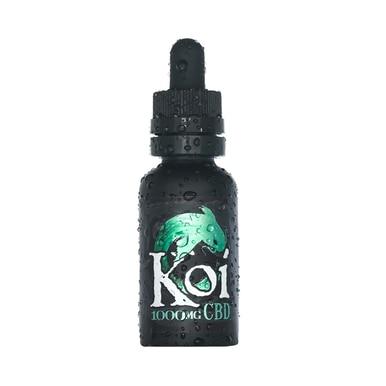 In a perfect world, our dogs would live long and healthy lives. Unfortunately, their times with us is limited, and their health can get just as bad as ours. Many pet owners and vets have been seeing amazing results when treating their sick animals with CBD treats or oil. Dogs are getting their energy back, they are in less pain, and they are healthy.
In a perfect world, our dogs would live long and healthy lives. Unfortunately, their times with us is limited, and their health can get just as bad as ours. Many pet owners and vets have been seeing amazing results when treating their sick animals with CBD treats or oil. Dogs are getting their energy back, they are in less pain, and they are healthy.
One disease that pet owners are ditching the pharmaceuticals for is arthritis. Medications come out a couple of times a year with side effects like weight gain and lethargy which can make the disease even worse. Considering hemp oil’s ability to help a human’s immune system, it makes sense that it would help out our dogs, too!
Your Dog And Their Arthritis
How do you know if your dog has arthritis? It’s not like they can sit you down at the dinner table and say, “Listen, Phil. These old bones aren’t what they used to be.” That would be awesome, but you have to be a bit more perceptive to figure it out.
What Is Arthritis?
Arthritis is more of a blanket disease that holds many other types of arthritis. Knowing what kind of arthritis your dog has gives you a better idea of how to handle it.
Osteoarthritis/Degenerative Joint Disease (DJD)
DJD is the arthritis disease that most people are familiar with. This is when the cartilage around the joints has worn down and is unable to protect the bones from rubbing together causing inflammation and pain. Diabetic dogs or dogs on steroids are more likely to develop this type of arthritis.
Septic Arthritis
This type of arthritis is from bacteria or a fungal infection. This type of arthritis can be extra painful. Your dog is not only experiencing inflammation but also pain from the organism that has infected the fluid around the joint. This type of arthritis is more common in younger dogs and certain breeds like Dobermans, German Shepherds, and Labradors.
Immune-Mediated Polyarthritis (IMPA)
This type of arthritis comes out of the blue. Even if there are no problems in your pet’s joints, the immune system will attack them anyway resulting in painful inflammation. With this type of arthritis, there are two main subclasses.
Non-Erosive
Non-Erosive IMPA is caused by certain diseases. Depending on the disease the dog has the treatment can be different. For dog’s who have systemic lupus erythematosus, they are treated with immunosuppressants. Polyarthritis-meningitis syndrome is a type of Non-Erosive IMPA that if not treated can cause permanent brain damage. Polyarthritis-polymyositis syndrome, which is most commonly found in middle-aged spaniel breeds, also needs immunosuppressants to treat. The last types of Non-Erosive IMPA are drug-induced polyarthritis and vaccine-associated polyarthritis. If the arthritis is from a medicine they take every day, the solution is just to stop giving it to them. However, if it is from a vaccine, then they are going to use immunosuppressants.
Erosive
This type of arthritis is only found in greyhounds specifically. There are two different types of Erosive IMPA. The first is idiopathic erosive polyarthritis, which is when the connective tissue between joints degenerates. It affects mainly smaller breeds between the ages of two and six. Erosive polyarthritis happens in younger dogs between three to thirty months old. Both of these diseases can be treated with immunosuppressants.
How To Tell If Your Dog Has Arthritis

Arthritis causes pain in dogs, just like humans. Your dog will exhibit different behavior because of it. If you find that lightly touching your dog on their joints makes them yelp, or if they jump off the couch and let out a little noise, then they might have issues with their joints.
This pain also slows them down. It can be hard to detect because arthritis generally comes with old age, but a massive loss in interest in exercising activities is a good sign they aren’t playing because it hurts, not because they are old.
If your dog is always licking the same spot, that means they have a health problem there. Usually, it’s a cut or scrape, but they even do this when their bones are hurting. If they have a stain on their fur from licking too much, talk to a vet about that area, and they can help figure out what’s going on.
Arthritis can make your dog’s bones stiff, making them slow to move especially after laying or sitting for long periods of time. If your dog needs to warm up before walking to the food dish, you might need to address their health issues.
Arthritis also worsens when it is cold. It might not seem so bad in the summertime, but in winter time it can really slow your dog down. If you see that your dog is seasonally lazy, it could be because the weather is affecting their joints.
How Do Dogs Get Arthritis?
Arthritis is most commonly formed through old age, not unlike humans. But that isn’t the only way they can develop it. Some dogs are born with arthritis because their joints or bones didn’t form correctly. Others have had ligament damage which causes their bones to rub together. If your dog has been injured, keep an eye on them even after they have healed because you never know what might have developed from the injury.
How Do You Diagnose A Dog With Arthritis?
Going to the vet is the for sure way to know if your dog has arthritis. You very well may have an extremely lazy dog, and there is nothing wrong with that! The vet can usually tell just through a physical where the arthritis is by gauging the pain the dog feels.
“Does it hurt here? Here? How about here?”
The veterinarian might also need to take blood or fluid samples to do tests. Once you know your dog has arthritis, and how bad it is, you can begin the conversation about treatment. One of the things pet owners are looking into more these days is CBD.
How Does CBD Help Treat Arthritis?
Cannabidiol (CBD) is a chemical that comes from the cannabis plant. This means it is filled with healing potential. Some confuse CBD and THC, but the difference is how they interact with your brain. While THC binds directly to cannabinoid receptors, CBD interacts indirectly through pathways and other receptors. Because THC binds directly, users get the “high” feeling, and since CBD does not, users cannot get high from hemp oil. This includes your dog!
CBD Elevates Endocannabinoids
What CBD does is elevate chemicals in our body called endocannabinoids. Even though they have cannabinoid in their names, they aren’t actually from the marijuana plant. Our brains make them organically. Thanks, brain!
These endocannabinoids are a part of a system called the endocannabinoid system. It is in charge of the regulation of the body. Any being with a spine has an endocannabinoid, and that includes our lovable furry friends.
The Endocannabinoid System
The endocannabinoids aren’t the only part of the system; there are also metabolic enzymes and cannabinoid receptors. The metabolic enzymes repair and run maintenance on living cells and clean up the dead ones. Cannabinoid receptors are what the endocannabinoids bind with to create stimulation.
Cannabinoid Receptors
There are two cannabinoid receptors, CB1 and CB2. CB1 receptors are found mostly in the brain, running the neurological functions. CB2 is found all over the body and runs the immune functions. This is one reason CBD is so effective with autoimmune diseases like arthritis.
How CBD Suppresses The Immune System

When CBD indirectly interacts with the CB2 receptor, it encourages the body to feel less pain and send less immune cells to the affected area. Endocannabinoids travel backward through retrograde signaling. When a cell is sending signals of pain to another cell so that you can feel it, CBD will help the endocannabinoids calm the sending cell down, reducing the amount of chemicals it sends to the receiving cell. Kind of like the endocannabinoids are telling the sending cell what is needed, and pain is not it.
Endocannabinoids are also natural immunomodulators. When the levels of endocannabinoids raise, and the immune system is overactive, the endocannabinoids make the immune system stop sending out fighting cells. However, if the immune system were too weak, the endocannabinoids would elevate the level of immune cells and strengthen their function.
Is CBD Safe For My Dog?

Though there is a lack of funding which results in a lack of research, veterinarians who use CBD are seeing results they can’t deny. There haven’t been reported overdoses of CBD in animals.
Too much THC can harm your animal, which is why a lot of animal lovers are choosing the safer CBD instead to treat their pups. Here is a guide on how much CBD to give your dog by weight for when you get started.
If your dog hates pills, there are easier methods of giving them CBD. Our shop has cannabis treats and hemp oil with less than .03% of THC which is perfect for your dog!






















This study explains how CBD has slowed progression of murine collagen-induced arthritis. It also goes on to talk about how it helps with glucose levels which can contribute to RA.
https://www.ncbi.nlm.nih.gov/pmc/articles/PMC2828614/
This study explains how regulating the endocannabinoid system can help with autoimmune diseases like arthritis. It shows what important role endocannabinoids play in the disease.
https://www.ncbi.nlm.nih.gov/pmc/articles/PMC4261058/
This study explains how cannabidiol decreased the number of T cell cytokines that cause inflammation.
https://www.sciencedirect.com/science/article/abs/pii/S0008874918300911
This study goes in depth into how CBD interacts with the brain and body to produce it’s anti-inflammatory effects.
https://www.ncbi.nlm.nih.gov/pmc/articles/PMC5686045/
This study explains that though CBD downregulates some immune cells, it significantly upregulated certain immune cells that are used for healing like G-CSF and M-CSF.
https://www.ncbi.nlm.nih.gov/pmc/articles/PMC4433789/
I hope this answered your questions. While lack of funding has limited research, there is still evidence that suggests that CBD can help with autoimmune diseases. We are hoping that over time as laws change and labs have more materials to research, we can have more definitive studies to put us at ease! Thank you so much for your question!
Is there any credible research that backs up your claim that CBD oil can impact the autoimmune system in the manner you describe? My understanding is that there is none to date.